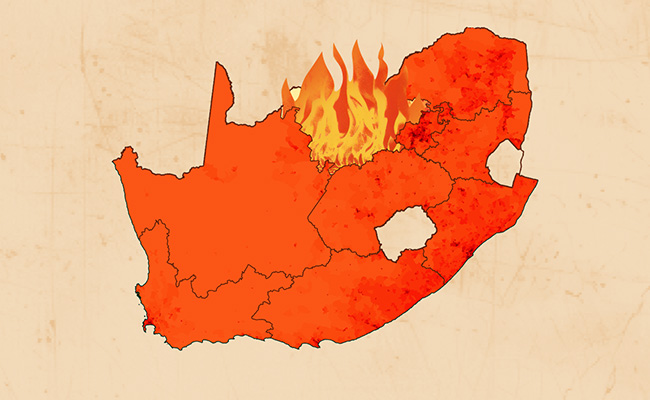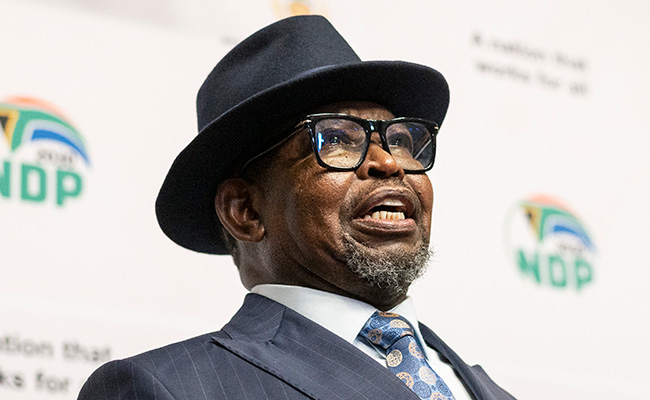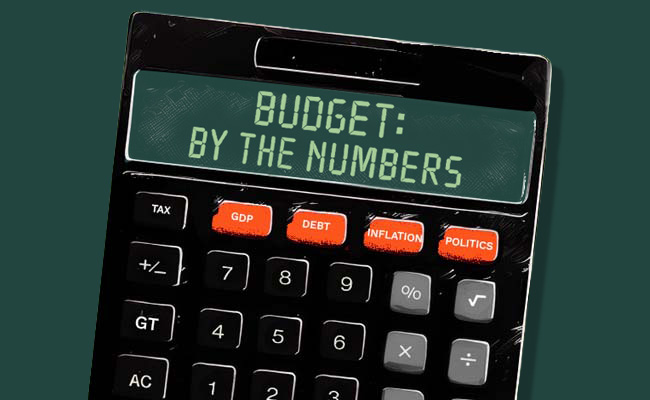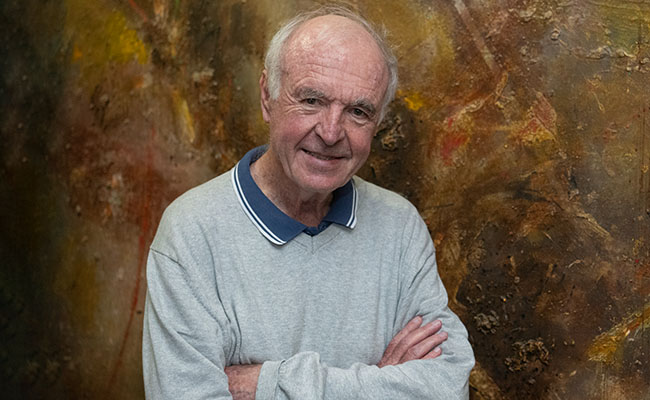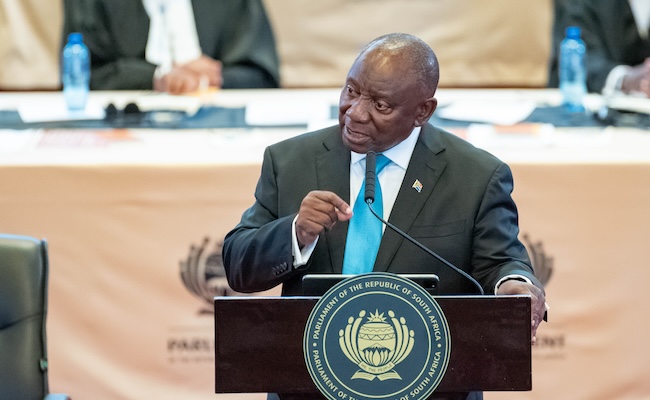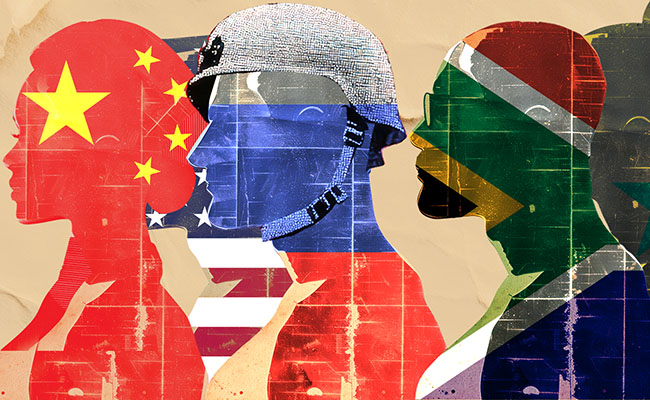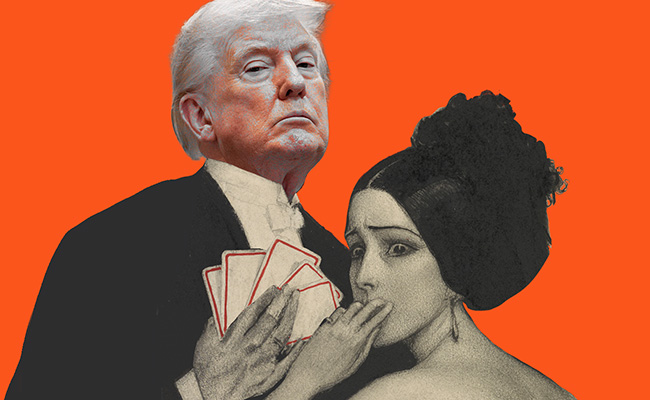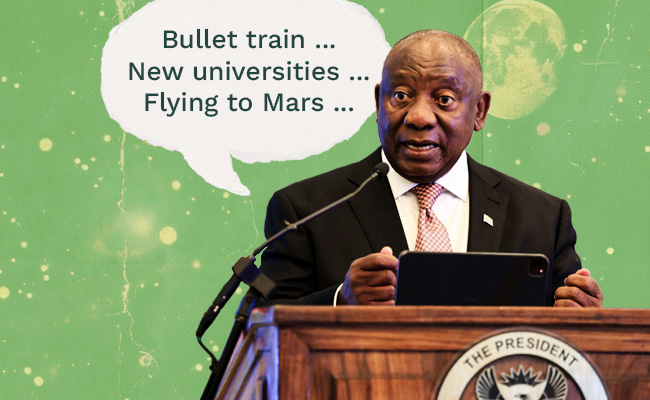“The busiest roads in the North West province on Fridays are the N4 and N14 to Gauteng,” says North West University professor Theo Venter. “The senior officials, the politicians of the North West … they live in Gauteng, they don’t live in the North West.”
You can’t really blame them. The province is the governance basket case of the country. In October last year, co-operative governance and traditional affairs minister Velenkosini Hlabisa announced that eight (35%) of North West’s municipalities were under administration.
Unemployment is 40.1% – nudging 55% if discouraged workers are included – against a national average of 33.2%. Then there’s the revolving door of political and administrative leadership, Wild West-style shootouts and cratering service delivery. (See more on the state of the province here.)
Every single one of the province’s 23 municipalities is in severe distress, says Venter. He’d know: he chaired the panel of experts developing a growth and development strategy for the North West, compiling a 200-page research report on the subject.
That impact is immense. On a whistle-stop visit to the province on Friday, President Cyril Ramaphosa bemoaned the increasing number of people living in poverty and the drop in households with access to basic services.
Yet, it doesn’t have to be this way. The province – home to mining, agriculture and tourism – is by no means short of resources.
Take Ditsobotla – around Lichtenburg. “If you look at the whole region, and this is what our research showed, it is probably the area in South Africa with the highest yield on cattle per hectare; if you look at the [rain-fed] summer grains, it has the highest yield in the country,” says Venter.
Yet the town has collapsed because of factional infighting in the ANC. Same with Potchefstroom. Same with Klerksdorp. “That is the story of the North West,” he says.
Political analyst Ralph Mathekga points to a trifecta of bad governance: corruption, factionalism, and patronage. He believes the province’s resources lie at the heart of its failure. “The money factor is huge in the spread of patronage in that area and the destabilisation of leadership,” he tells Currency.
Leaders survive by dispensing jobs, contracts or favours. It is this patronage – not ideology – that drives factionalism and leadership churn. With widespread unemployment and access to the financial levers of government, positions in municipalities are at a premium.
Only, the quality of the leadership is questionable. Talented and ambitious politicians gravitate up to the provincial level, and from there to the national. What’s left behind at the very bottom – at the local level – is “not good”, says Venter. “And that is part of the failure of local government: weak leadership and resultant weak governance in general.”
Battle for the municipalities
Factionalism in the North West is nothing new – and it’s widespread. Mathekga points out that, when parts of the province were parcelled out under apartheid as the “homeland” of Bophuthatswana, strongman Lucas Mangope kept a close handle on things. Not through governance, mind you, but through controlling “who gets closer to the trough”.
“When the new system came in – democratisation – that also meant the democratisation of corruption,” he argues.
Venter believes the North West’s problems, in part, stem from its fractured nature and its outlier capital, Mahikeng.
In the northeast of the province, places like Hammanskraal look to Pretoria rather than the provincial capital; Potchefstroom and Klerksdorp to the south have little to do with Mahikeng; while Rustenburg goes its own way, says Venter.
The upshot is fragmentation, with ANC politics in places like Hammanskraal entirely out of sync with that in southern districts such as JB Marks – a divide that seeps into decision-making.
“If you’ve got your leadership coming from Vryburg/Naledi, then the ANC in Hammanskraal is at odds,” he explains. “If the leadership is from the southern part of the province, like Potch – where the current leader Nono Maloyi is from – then you’re at odds with other factions in the province.”
It doesn’t help that there are two centres of power: the party chair in the province, Maloyi, is not the premier; that honour belongs to his deputy, Lazarus Mokgosi. “So, the question is, is Mokgosi the premier or a puppet on a string for Maloyi?” Venter asks.
That tension is only likely to get worse as the province gears up for its elective conference in the next year: Maloyi is likely to face off against Mokgosi for the party leadership.
Out in the cold
In part, the North West’s problem is the marginalisation of the province. It’s an important point, says Venter. If you look at Ramaphosa’s extended cabinet (including deputies), each province has a minimum of four or so seats. The North West has just two representatives – both only at a deputy level. “They don’t have a minister; that tells us something about how the ANC nationally is relating to the North West.”
The sidelining of the province has its roots in the Polokwane elective conference in 2007. There, only the North West and Gauteng stood behind Thabo Mbeki’s bid for a third term as party president. Only, Jacob Zuma outmanoeuvred Mbeki – and the two provinces paid the price by being cast out into the cold.
Gauteng is now making its comeback, but it’s got more to offer the national leaders than the North West. “They know the ANC’s revival is built on reviving the urban support base of the ANC. That is their strategy,” Venter adds. “But the North West doesn’t have that kind of contribution; it’s got a small population, unemployment of about 40% and it’s mostly rural … it doesn’t bring much to the ANC’s renewal strategy.”
Mathekga, for his part, speculates that it’s precisely because of this lack of national representation – of marginalisation – that the province has “gone rogue”; regional leaders feel neglected by national leadership. With that – and with money behind them – they have become difficult to rein in, leaving the national ANC with no clear strategy for the province (attempts at ad hoc interventions and changes in leadership have shown little success).
Then there’s the national government. “Nothing can excuse poor governance, maladministration, financial mismanagement, wastage and corruption,” Ramaphosa said on Friday – but with little detail on how to fix the province.
Taking cognisance of the issue is not enough, says the DA. “The ANC has had every chance to act,” provincial leader Leon Basson said at the weekend. “Instead, they looted and neglected. Now they want praise for finally noticing the disaster they themselves created.”
With the ANC unable to control its errant leaders, Mathekga believes it’s unlikely the solution lies with the party. “Does it get better through the ANC becoming stronger nationally and reining in the comrades in the North West? I don’t think so.”
He sees the solution, instead, lying in real challengers to the ANC’s dominance building relationships with communities and competing openly to access power. “Perhaps if other parties start looking at the North West as an arena to start competitive politics, it can root out corruption to some extent,” he says. But that’s no quick fix.
Top image: Rawpixel/Currency collage.
Sign up to Currency’s weekly newsletters to receive your own bulletin of weekday news and weekend treats. Register here.


